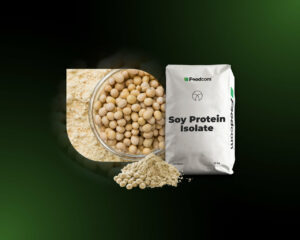Read those 5 top stories from the foodstuffs market to be in the loop! We look into increased food imports to Africa and how growing demand results in $ 80 million worth of orders. In other news, meat consumption in Australia has been decreasing for the last 25 years and drives grain prices. Later, take a look at how modern technology redefines the idea of food.
Increased food imports to Africa
In 2019, the total imports of dairy products to Africa amounted to 2.1 million tonnes at the value of €4.8 million. Over the course of 10 years, the continent increased dairy purchases by 640,000 tonnes. Between 2010 and 2020, the domestic consumption of liquid dairy grew from 15 billion liters to nearly 25 billion liters which still places the African per capita consumption at 67 liters below the world average. With the growing population and limited agriculture possibilities, Africans are propelling the demand for imports of dairy products as well as for other foodstuffs. In 2020, Africa imported $80 billion worth of food – particularly grains and processed goods – and that number is growing by 6% each year. During the pandemic, the food insecurity only worsened when the continent experienced extreme spikes in prices for nutrition products between 40% up to 200% over the five years average.
Australian eat the least meat since 1996
Domestic consumption of meat products in Australia hit the lowest in 25 years and the meat processing industry is projected to decline by 10% in 2021. Consumers, not limited to vegetarians and vegans, are shifting towards plant-based alternatives. One of the reasons is the growing price of domestic meat which has increased by 3.1% annually since 2016. In the upcoming season, the prices for cattle and sheep are expected to rise significantly while the overall value of livestock production is projected to note an 8% decrease. At the same time, the gross value of grains, pulses, and oil seeds is expected to grow by 59%. Moreover, Australians are also becoming more concerned about the environmental impact of the meat industry and the climate changes that led to the country-wide bushfire last year.
Increased consumer demand for non-GMO products
In recent years, consumers became increasingly interested in foodstuffs produced without genetically modified materials. End users associate consuming GMO goods with a negative impact on health including the development of new allergens and enhanced food allergies. Since genetically modified products are a relatively new occurrence in the agricultural sector, the study on their long-term impact is still inconclusive. While plant products with over 0.9% GMO have a mandatory label, it is not obligatory to mark the foodstuffs produced from milk which was derived from animals fed with GMO fodder.
Redefining food on a global scale
Edible insects, fish blood, and laboratory-produced meat are no longer one man’s crazy dream – all sorts of unexpected ingredients are becoming increasingly popular in the gastronomy sector all over the world. The Inspect Experience – a pop-up restaurant in Cape Town offers ice cream based on insect-derived “dairy” material, produced from black soldier fly. The advantages are plenty: the insects are sustainably cultivated with zero gas emissions, they are water and energy-efficient to farm, and contain high levels of good fats and proteins. In Australia, chef Josh Niland promotes waste-free cooking by using the entirety of fish and creating dishes from fish eyes, blood, and bones. In order to promote environmentally friendly gastronomy, one Chilean entrepreneur is dedicated to creating plant-based alternatives by replicating the molecular structure of the meat-based ones to recreate their flavor, texture, and smell.
Big money in the game for laboratory meat
What was once an impossibility in the agricultural sector is now becoming a reality. Animal products are finding more and more alternatives produced in a laboratory environment with the use of the newest technological developments and impressive investments. In 2020 companies that manufacture cell-based meat received over $360 million in funding. In December last year Good Meat, a division of Eat Just, introduced to the world the first-ever cell-based meat in Singapore. The company has now received $170 million in funding to increase its capacity and further propel its cultured meat endeavor. Eat Just, among other major players on the market, expects to enter the U.S. market in 2021.








